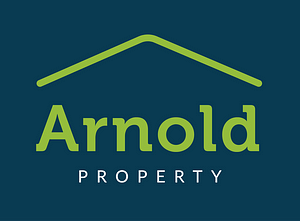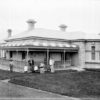
After a recent coffee catch up with Brad East from Wise Guy Finance a topic which popped up was about the most common questions we get asked by first home buyers.
I remember when my wife and I were first home buyers and we bought our first home in Mayfield 7 years ago, I had no clue where to begin. I had no idea what stamp duty was or what extra costs were involved on top of purchasing the home. Back then I didn’t even know about what a mortgage broker was for and just went straight into my bank.
The only one thing I had a good grip on was my money, I learnt from an early age the importance of money and how to save well. The best advice I can give is to differentiate the difference between necessary and unnecessary living expenses. While living at home when your living expenses are low try and take advantage of the situation by saving as much as you can rather than spending as much as you can.
Hopefully this article can answer all the questions first home buyers may have, and prepare them to be ready to save for and purchase their first home.
What are some tips on how to get started with a savings plan?
The basics of saving money are quite simple, but require a lot of discipline to execute. You need to look at your current lifestyle and spending habits to determine if you could be saving more money than you currently are.
- Record your what you are spending money on
- Make a budget and set limits on what you are going to spend money on
- Pick an amount per week you can save
- Set a time frame for when you would like to achieve these goals and monitor
- Make saving money easier with automatic transfers
- Watch your savings grow
There is a great saying to remember when saving money: “Live like some will not, so that you can live like some cannot”. So basically, it is not going to be easy but you will thank yourself later in life for it.
For help setting up a budget, use our free budget planner
What information is required to apply for a loan? Eg savings plan or credit history.
- Most lenders also require ‘genuine savings’. This is when you have saved, or held, 5% of the purchase price for at least a 3-month period. If you were gifted the 5%, you would need to keep it in a savings account for 3 -months for it to qualify as genuine savings.
- Your credit score is a number between 0 and 1200 which represents the information found in your credit file. The higher the number, the more willing lenders will be in lending you more money. Late payment of bills, a high amount of credit enquiries and poor credit history all affect your credit score.
- There is a lot of information that is assessed during a home loan application. Some factors weigh heavily on your application such as your credit history and employment. If there are defaults on your credit file, the chances are most lenders will not approve your loan. Most lenders now also use what is called a credit score.
What is stamp duty and when is it applicable to pay this?
Stamp duty is a charge which is applied by state governments in Australia on transactions relating to the transfer of land or property. It is paid upfront and needs to be budgeted for in addition to your loan deposit.
The amount of stamp duty you are required to pay differs in each state, however there are three factors, along with the value of the property, that determine how much stamp duty you will pay. Contributing factors include:
- whether the property is a primary residence or investment property;
- whether you are a first home buyer; and
- if you are purchasing an established home, a new home or vacant land.
Use our free calculator to get an idea of how much stamp duty you will pay – click here
What’s the average cost to set up a home loan?
The cost of establishing a home loan varies from lender to lender. Some lenders will waive application fees some will not. A good mortgage broker will weigh up all your options and ensure that you are saving as much money as possible.
What extra costs are involved on top of my 10% deposit. Some of the common costs involved are:
There are a lot of costs involved with purchasing a house. It is important that you research these costs and make sure you have enough funds to pay for them all.
- Stamp duty
- Mortgage Registration Fee
- Transfer Fee
- Loan Application Fee
- Legal Fees
- Lenders Mortgage Insurance
- Building and Pest Inspection
- Moving Expenses
- Utilities
- Home and Contents Insurance
- Rates and Council Fees
- Strata Searches
To estimate the costs involved, use our property buying cost calculator
I am only young and just started a new job, will I still be able to get a loan? If not how can I get around this?
Employment policies vary from lender to lender. Some require that you have been employed for a minimum of 12 months, other 3 months. Some will not approve applicants that are on probation, other will if your position is permanent. It is important that you speak with a good mortgage broker so that they can get an understanding of your current position and find a home loan that suits you. This will not only save you time, but also money.
How quickly can I get pre-approved for a loan, and how long will it stay valid for?
Pre-approval is a lender’s assessment of your likelihood of being approved for an otherwise suitable loan.
The appraisal is made based on your ability to service a loan by looking into your living expenses and liabilities, your credit history, your employment circumstances and how often you have moved home or employment in the recent past.
As it is performed prior to a property being found and chosen, it does not consider the particulars of a specific property and valuation, which is why uncertainties can arise.
Depending on the lender, you can gain pre-approval within a few business days. Most pre-approvals are valid for 90 days.
How much will it cost me to use a mortgage broker?
Most mortgage brokers do not charge you a cent, but some do charge you an upfront fee. I do not charge my clients anything for my services. I receive a commission payment for the lender which best suits your needs.
Why would I use a mortgage broker rather than going directly to my bank?
Basically, a mortgage broker does all the hard work for you, usually at no cost to you. They will start by getting an understanding of your needs and long term goals. Just because a lender has the lowest interest rate, doesn’t mean the product suits your needs. Finding out a product doesn’t meet your needs, when it is too late, can be very expensive. Once your broker has a thorough understanding of your needs, they will search their database for a product that suits you. Your broker will then explain all your options and you will pick a loan. Once you have chosen a loan product, the broker will lodge the application and follow it through all the way to settlement and beyond.
So, in short, you can search over 40 lenders and over a 1000 products yourself or you can get the assistance of a broker to do so.
What are current government grants for buying a property?
The available grants vary from state to state. Currently in NSW, you are eligible for the first home owners grant and stamp duty exemption if you purchase or build a new house only.
This is a grant available to Australian citizens or permanent residents who wish to buy or build their first home, which will be their principal place of residence within 12 months of settlement.
Please visit your relevant government authority website to find out what grants you may be eligible for.





